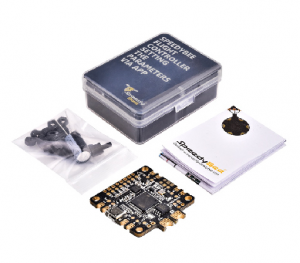EV current sensors, also known as electric vehicle current sensors, are specialized transducers used in electric vehicles to measure and monitor the flow of electric current. They play a crucial role in ensuring the safe and efficient operation of various electrical systems within an electric vehicle. Here are a few examples of their applications:
1. Battery Management System (BMS):
EV current sensors are utilized in the BMS, which is responsible for monitoring and controlling the electric vehicle’s battery pack. They measure the current flowing into and out of the battery, providing crucial data for state-of-charge (SoC) estimation, cell balancing, and thermal management. Accurate current measurement is vital for optimizing battery performance, prolonging battery life, and ensuring safe operation.
2. Motor Control and Inverter Systems:
Electric vehicles rely on complex motor control and inverter systems for their propulsion. EV current sensors are used in these systems to monitor the current flowing through the motor windings and the power electronics. This information is crucial for precise control of motor speed, torque, and efficiency, as well as for protection against overcurrent conditions and fault detection.
3. Charging Infrastructure:
EV current sensors are employed in charging stations and infrastructure to measure the current flow during the charging process. They ensure smooth and efficient charging by monitoring the current drawn by the electric vehicle, enabling proper power allocation and preventing overloading of the charging station. These sensors are critical for accurate billing and for maintaining the stability and reliability of the electrical grid.
4. Vehicle Safety Systems:
Electric vehicles incorporate various safety systems, including those related to high-voltage components and electrical fault detection. EV current sensors are utilized in these systems to monitor the current flowing through high-voltage cables and circuits. They help detect faults, such as ground faults and short circuits, and enable the activation of protective measures to ensure the safety of the vehicle occupants and prevent damage to the electrical system.
5. Energy Management and Efficiency:
EV current sensors are employed in energy management systems to monitor and optimize the energy consumption of electric vehicles. By measuring the current flow in different subsystems, such as air conditioning, lighting, and auxiliary systems, these sensors help identify areas for energy savings and improve overall vehicle efficiency. This information aids in maximizing the range of the electric vehicle and optimizing its energy usage.

In conclusion, EV current sensors find extensive applications in electric vehicles, including battery management, motor control, charging infrastructure, safety systems, and energy management. These sensors are crucial for ensuring the safe and efficient operation of electric vehicles, optimizing battery performance, and enhancing overall vehicle efficiency. As the electric vehicle industry continues to grow, the demand for accurate and reliable EV current sensors is expected to increase, driving further advancements in this technology.
 rongtech
rongtech






您好!Please sign in